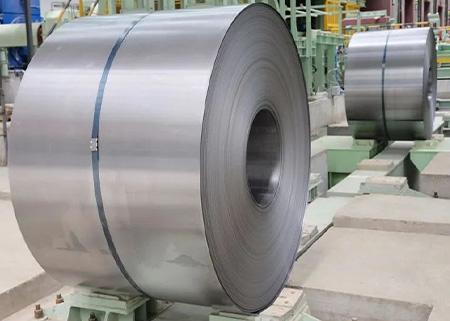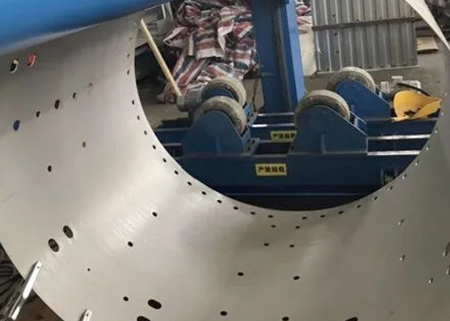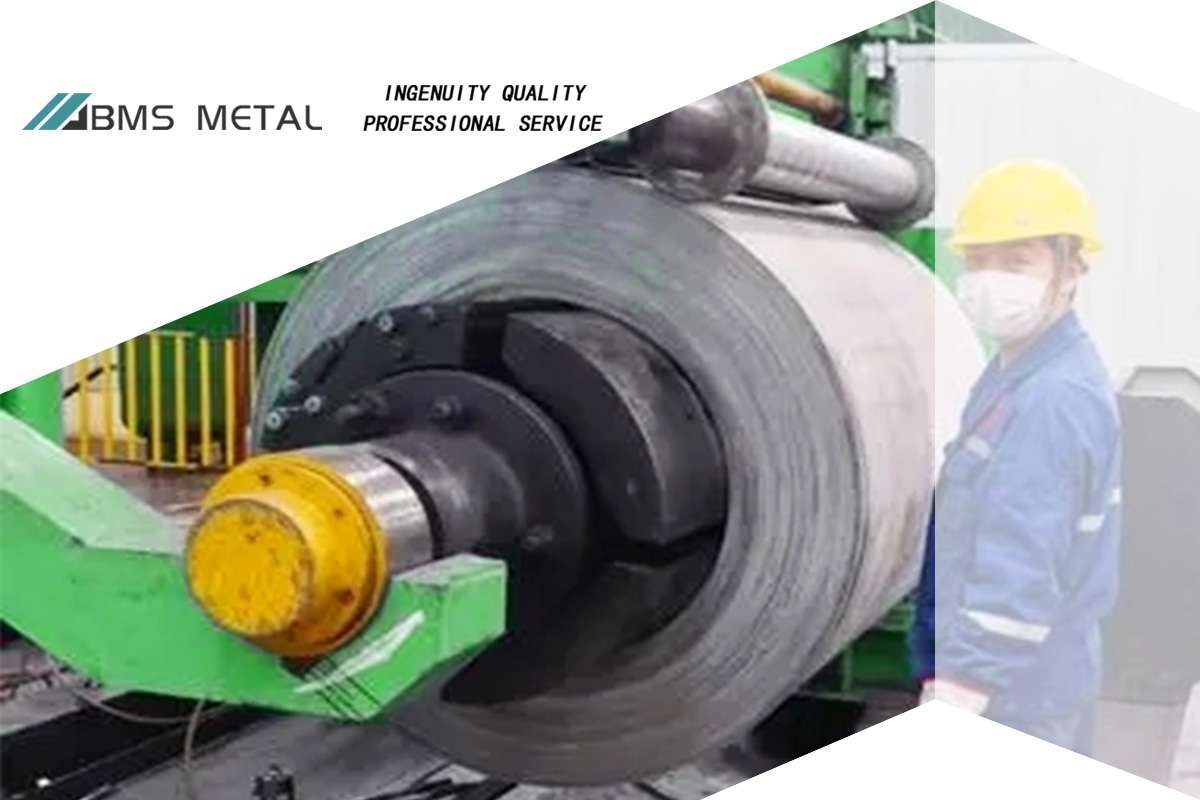The Significance of Stainless Steel Coils
Stainless steel coils are an indispensable material in modern industry, and their importance is self-evident. They are widely used across various industries due to their unique properties, such as corrosion resistance, high strength, heat resistance, ease of cleaning, and aesthetic appeal. Let’s delve into the crucial role of stainless steel coils in different industries and their current status in the Chinese steel industry.

Purpose of This Article
This article aims to explore in detail which industries rely on stainless steel coils and analyze their specific applications within these industries. By gaining an in-depth understanding of these sectors, we can better comprehend the market demand and future prospects for stainless steel coils. Additionally, it helps assess the current state of China’s steel industry, particularly the development trends related to stainless steel coils.
Industry One: Stainless Steel Welded Pipes
Applications of Stainless Steel Coils in the Industry
Stainless steel coils play a vital role in the stainless steel welded pipe industry. Stainless steel welded pipes are typically used for conveying liquids, gases, or solids, demanding high quality and corrosion resistance. Applications of stainless steel coils in this sector include manufacturing industrial pipelines, petroleum and natural gas transport pipes, water treatment pipes, food processing pipes, and chemical engineering pipes, among others. These pipes require high strength and corrosion resistance to ensure safe and reliable transport.
Key Functions of Stainless Steel Coils
In the manufacturing of stainless steel welded pipes, stainless steel coils serve several crucial functions:
- Corrosion Resistance: The corrosion resistance of stainless steel coils makes them an ideal choice for handling various chemicals and liquids, contributing to extended pipe lifespans and reduced maintenance costs.
- Strength and Pressure Resistance: Stainless steel coils provide the necessary strength for pipes to withstand high pressure and temperature conditions, ensuring pipe safety and reliability.
- Hygiene Standards: In the food processing and medical equipment industries, stainless steel welded pipes need to adhere to hygiene standards. The smooth surface of stainless steel coils is easy to clean, aiding in maintaining safety and hygiene.
Demand Trends Within the Industry
China’s steel industry has been rapidly growing, and the stainless steel welded pipe sector has made significant progress in recent years. The accelerated urbanization process in China has led to increased construction and infrastructure development, resulting in a growing demand for stainless steel pipes. Furthermore, the rising environmental awareness and the need for water resource protection have increased the demand for water treatment equipment and pipes, further propelling the development of the stainless steel welded pipe industry. As China continues to promote manufacturing upgrades and quality improvements, the demand for stainless steel coils is expected to continue to rise.
Industry Two: Hardware Stamping Parts
Scope of Stainless Steel Coil Applications
The hardware stamping parts manufacturing industry widely uses stainless steel coils. These coils are used to produce various hardware components and stamped parts, including screws, nuts, washers, brackets, connectors, and other small metal components. The application range of stainless steel coils covers multiple sectors, including construction, electronics, household items, and mechanical manufacturing.
Specific Uses of Stainless Steel Coils
In the manufacturing of hardware stamping parts, stainless steel coils are favored for their specific properties. Stainless steel coils possess high corrosion resistance, making them suitable for the production of products intended for outdoor, humid, or chemically corrosive environments. For example, stainless steel components in outdoor equipment, marine accessories, and food processing equipment require excellent weather resistance and corrosion resistance.
Competitive Advantages of Stainless Steel Coils in the Industry
In the hardware stamping parts manufacturing industry, stainless steel coils offer distinct competitive advantages, including:
- Corrosion Resistance: The corrosion resistance of stainless steel coils allows products to maintain their appearance and performance in harsh environments, reducing maintenance costs.
- Strength and Ductility: Stainless steel coils provide high strength and good ductility, making it easier to produce hardware stamping parts through various stamping and forming processes.
- Hygiene Standards: In the food processing industry, the use of stainless steel coils complies with hygiene standards, contributing to product safety and hygiene.
- Long-Term Durability: Hardware stamping parts manufactured using stainless steel coils typically have long-term durability, meeting customers’ long-lasting requirements.
Industry Three: Automotive Industry
Widespread Use of Stainless Steel Coils
Stainless steel coils find extensive applications in the automotive industry. They are used in the manufacturing of body components, exhaust systems, chassis parts, decorative trims, interior components, and more. The high strength, corrosion resistance, and lightweight characteristics of stainless steel coils make them an ideal choice for automotive manufacturing.

Industry’s Future Dependency on Stainless Steel
With advancements in automotive technology and increasing environmental awareness, there is a growing demand for high-quality and environmentally friendly materials in the automotive industry. Stainless steel coils play a crucial role in meeting these requirements. In the future, the automotive industry’s dependence on stainless steel coils will continue to grow to meet the demands of developing new energy vehicles, smart cars, and lightweight technologies.
Sustainable Development and Its Relation to Stainless Steel
The Chinese automotive industry is actively pursuing sustainable development, including waste reduction, improved energy efficiency, and emissions reduction. The use of stainless steel coils contributes to these goals due to their recyclability and long-term durability. By adopting stainless steel coils, the automotive industry can reduce resource wastage, minimize environmental impact, and promote sustainable development.
Conclusion
In this article, we have conducted an in-depth study of industries that depend on stainless steel coils and their critical roles within these sectors. By exploring the applications of stainless steel coils in welded pipes, hardware stamping parts, and the automotive industry, we have discovered the extensive application areas and diverse functions of stainless steel coils.
Summarizing the Key Roles of Stainless Steel Coils in Different Industries
In the welded pipe industry, stainless steel coils play a crucial role in manufacturing high-strength, corrosion-resistant pipes, ensuring the reliable transportation of liquids and gases. The hardware stamping parts industry relies on stainless steel coils to manufacture various hardware components such as screws, nuts, and washers, which require high strength and corrosion resistance. In the automotive industry, stainless steel coils are widely used in the production of exhaust systems, vehicle body structures, and other critical components, enhancing the durability and safety of automobiles. The dependence of these industries highlights the indispensability of stainless steel coils in the industrial and manufacturing sectors, providing significant market demand for China’s steel industry.
Future Prospects of Stainless Steel Coils
With the continued growth of the Chinese economy and industrial upgrades, the future prospects of stainless steel coils are filled with opportunities. China’s urbanization process, infrastructure development, and manufacturing industry growth will further drive the demand for stainless steel coils. Additionally, the increasing environmental awareness will encourage the steel industry in China to adopt more environmentally friendly production methods, enhancing the market competitiveness of stainless steel coils.
